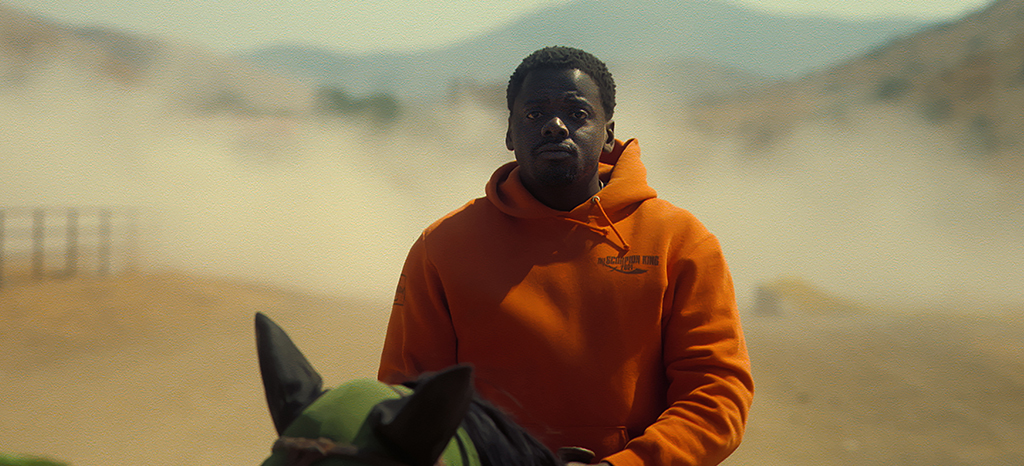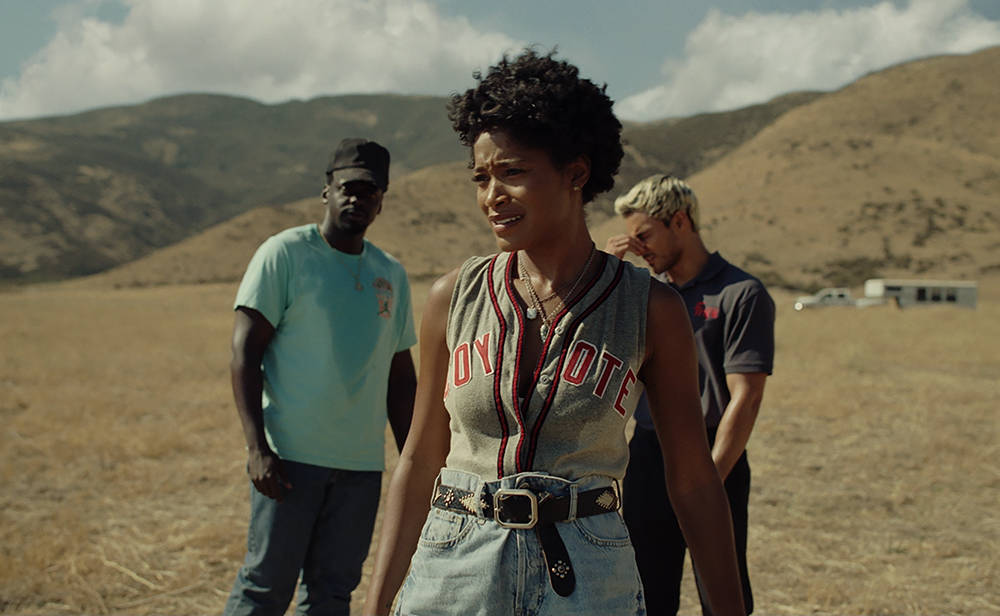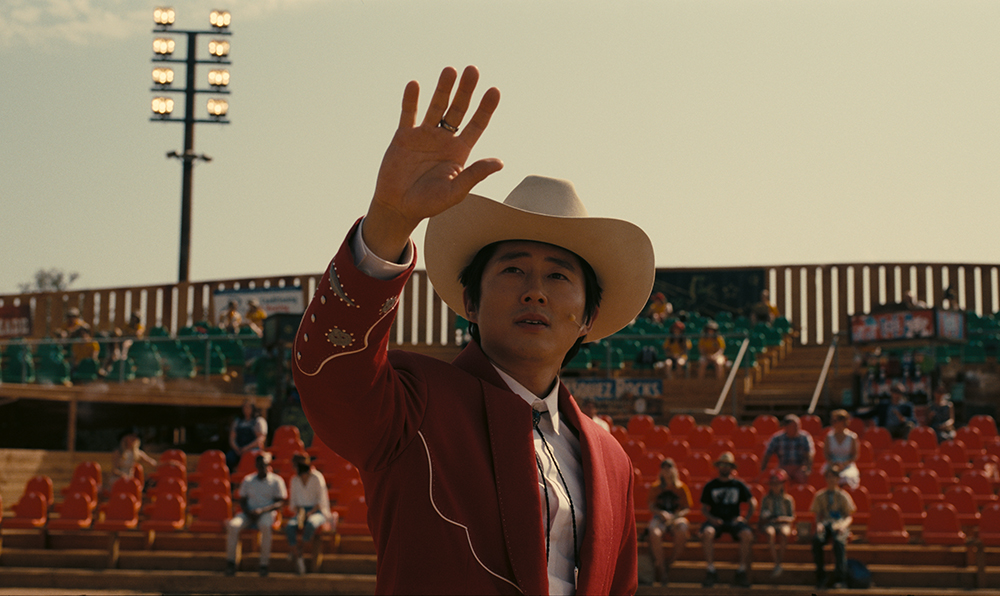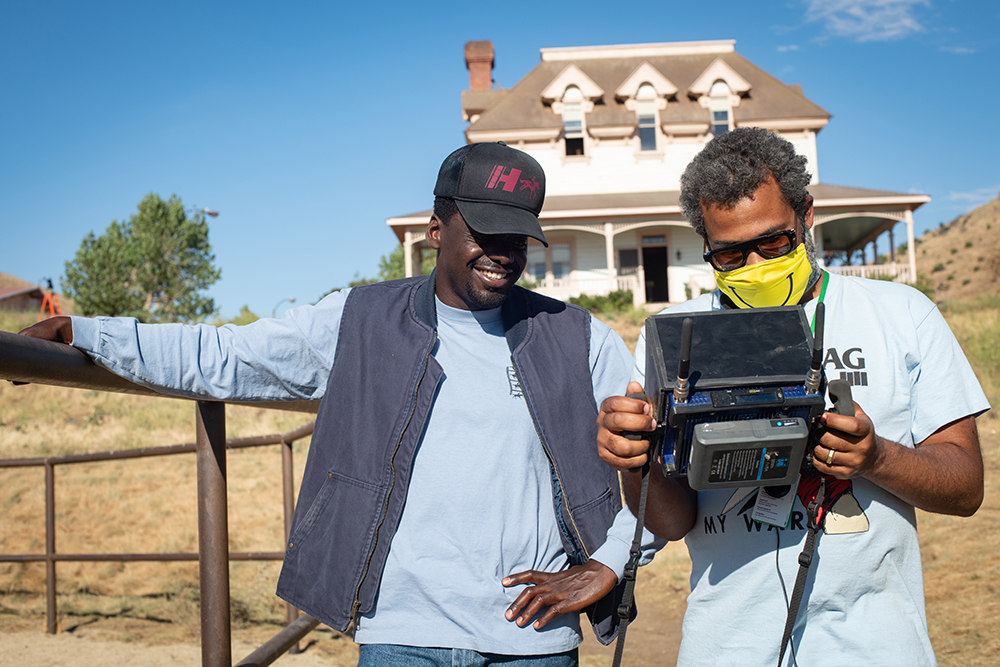
I left the cinema after watching Nope, thinking to myself, “Man, I just could not look away.” I think that’s the point of a movie like Nope. Each universe director Jordan Peele introduces you to pulls you into a new set of likable characters, facing a new and creative threat, with their own set of defined rules. Nope is no different, and yet – this simplified formula delights me every time.
I’ll be the first to admit that Peele’s previous movies, Get Out and Us, are on my list of favourite movies of all time. Peele just so happens to scratch a horror/thriller itch that I’ve always had. Take my thoughts on his newest film with a grain of salt, because I am decidedly already a fan.
Nope, in cinemas now, is a spectacle of a film. And that spectacle, masterfully created by both director and cast, is fully intentionally crafted to prey on your morbid curiosity. In an interview with TODAY, Peele cited that his main inspiration for Nope was human nature.
“All my films are about human nature, and about something that I fear is part of our DNA and scares me… but I feel like it hasn’t been pinpointed yet.”

Daniel Kaluuya, Keke Palmer, and Brandon Perea in ‘Nope’
This statement holds true to the reason why Nope works so well. Throughout the pandemic, tragedy has become a common occurrence that we can’t seem to escape. We’ve grown almost accustomed to turning on the TV to find tragic news, polarised opinions, and devastating facts. But we never quite grasp the fact that we can choose to tune out from these things.
Beyond wanting to remain aware of today’s world, there’s an element of morbid curiosity in all of us. It’s why we slow down to look at car accidents, or listen to entire podcasts or videos covering a heinous murder. There’s something awfully strange about how humans seek out tragedy. We find it uncomfortable or scary, but we just can’t look away.
That’s exactly what Nope targets. Daniel Kaluuya returns as the stoic Otis Jr. or “OJ” Haywood, alongside Keke Palmer as OJ’s charismatic sister Emerald or “Em” Haywood. The two naturally showcase an easy sibling bond, playing off one another to portray a characterised dynamic and familial history almost wordlessly.
The two are joined by Brandon Perea, an almost burdensome but certainly likable Fry’s tech salesman Angel. The three round out a small and determined team trying to investigate the UFO that has been plaguing the Haywood ranch and terrorising their horses.

Steven Yeun in ‘Nope’
Nearby, Steven Yeun’s hubris-prone character Ricky Park, or “Jupe” (nicknames seem to be a commonality in Nope, just like old Westerns) is a theme park owner who is attempting to make a profit from the terrifying presence in the sky.
Throughout Nope, our main characters struggle to document the events happening on the farm, desperate to grasp hard evidence of the UFO in the sky. I wondered to myself why they were so willing to put themselves in harm’s way, but Nope is relying on a real-life premise.
These days, we absolutely love to be the one who captures something amazing online. A video of a supernatural occurrence, awful wrongdoings, or tragedy – whatever it may be, people often want to be the ones to capture it. Part of the thrill and horror in Nope is that it reflects a candid look at humans as we are now, desperate for a sliver of importance or fame.
I don’t think I, or Peele, is attempting to send a “get off your phone everyone!” nagging message. Instead, the film is documenting a strange and awful reality of today, and we don’t need an obvious ‘big bad guy’ to know that. The antagonist of Nope, without giving too much away, doesn’t have to have a long monologue to pass on a message. You’ll know what the film is trying to say without it.

Daniel Kaluuya Jordan Peele on the set of ‘Nope’
Nope also touches on the relationships between humans and animals. The events of the film largely take place on a horse ranch, and the Haywoods come from a long line of horse trainers. It explores the respect required in order to operate with these animals, and how this respect has historically been neglected for the purpose of entertainment.
The outstanding cast of Nope offers diversity too, as all of Peele’s previous films have done. The film’s thesis also touches on the erasure of Black contributions in media, especially with the use of imagery from The Horse in Motion, the first motion picture ever captured.
The representation seen in Nope doesn’t specifically play as large a role as it did in Get Out, but it will always be a welcome sight to people of colour like myself. Peele’s commitment to reflecting the world today successfully holds a mirror to the large amount of multiculturalism in our society that is often suppressed in other films.
Horror and thrillers, as I’ve seen them, often neglect minority experiences. Nope does something as simple as showing people like myself on screen, and that representation is what makes audiences feel included and seen.
Nope is a great film that demonstrates the everyday horrors we tend to overlook. While it isn’t outrightly terrifying, it’s a must-watch movie that introduces a new and worthy addition to Peele’s plethora of great-quality flicks. I found myself interested in the established world, and frankly, as awe-struck as its characters by the being in the sky. Nope will not disappoint.









